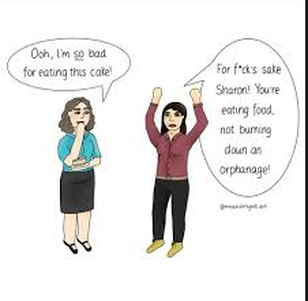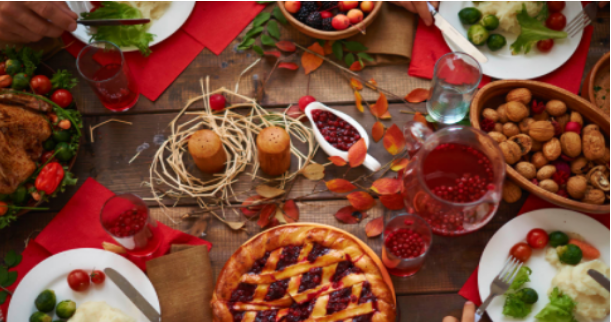With the start of the new decade, many find themselves making resolutions, and while the intention is objectively constructive, the urge for drastic change often takes a toll on women’s physical and mental health. --Edrisina sklar, 11th grade

The holiday season is over, and the new decade has begun! Happy 2020! With the start of the new decade, many find themselves making resolutions. New Year’s resolutions date back to 4,000 years ago, and while the intention is objectively constructive, the urge for drastic change often takes a toll on women’s physical and mental health.
Statistics show that over half of Americans’ New Year’s resolutions are about either improving their financial situation or losing weight.
While losing weight is sometimes a valid concern, studies show that most people who follow through with the idea do not evoke healthy strategies to achieve their ( often drastically unrealistic) goals. In a culture obsessed with waistlines and pounds, the main demographic affected by this phenomena is women.
When it comes to eating, New Years can be risky . With the time leading up to it comes a lot of eating. Cakes, candies, and cookies seem to be around every corner. And every year, as soon as Christmas is over, every other woman seems to be talking about how she “has to cut back,” or how she was “really bad these past couple of weeks.” While the desire to maintain a nutritious and balanced diet is healthy, many focus not on eating healthily, but eating less, to "make up for" what they may have previously consumed. This type of logic is just one example of the colossal spike in the toxicity seen every New Year in the way we think about food, and even the way we consume it . Unhealthy thinking habits surrounding food escalate quickly and can easily lead to disordered eating, which in turn often escalates rapidly to the point of an actual eating disorder.
The belief that if we’ve eaten something we need to immediately work it off, or eat less to compensate, is extremely detrimental to our mental health. It not only increases guilt around consumption, but simultaneously creates a punitive association with exercise. Exercise shouldn't be a punishment for eating. This way of thinking can quickly lead to negative thought patterns about eating, and often even food restriction. You're allowed to eat carbs regardless of whether you go on a run the next day. Both exercise and eating enough are EQUALLY important to your health, and the misconception that you are only allowed to eat when you exercise is extremely dangerous.
So stay safe, stay healthy, and show that holiday food guilt who’s boss.
Statistics show that over half of Americans’ New Year’s resolutions are about either improving their financial situation or losing weight.
While losing weight is sometimes a valid concern, studies show that most people who follow through with the idea do not evoke healthy strategies to achieve their ( often drastically unrealistic) goals. In a culture obsessed with waistlines and pounds, the main demographic affected by this phenomena is women.
When it comes to eating, New Years can be risky . With the time leading up to it comes a lot of eating. Cakes, candies, and cookies seem to be around every corner. And every year, as soon as Christmas is over, every other woman seems to be talking about how she “has to cut back,” or how she was “really bad these past couple of weeks.” While the desire to maintain a nutritious and balanced diet is healthy, many focus not on eating healthily, but eating less, to "make up for" what they may have previously consumed. This type of logic is just one example of the colossal spike in the toxicity seen every New Year in the way we think about food, and even the way we consume it . Unhealthy thinking habits surrounding food escalate quickly and can easily lead to disordered eating, which in turn often escalates rapidly to the point of an actual eating disorder.
The belief that if we’ve eaten something we need to immediately work it off, or eat less to compensate, is extremely detrimental to our mental health. It not only increases guilt around consumption, but simultaneously creates a punitive association with exercise. Exercise shouldn't be a punishment for eating. This way of thinking can quickly lead to negative thought patterns about eating, and often even food restriction. You're allowed to eat carbs regardless of whether you go on a run the next day. Both exercise and eating enough are EQUALLY important to your health, and the misconception that you are only allowed to eat when you exercise is extremely dangerous.
So stay safe, stay healthy, and show that holiday food guilt who’s boss.


